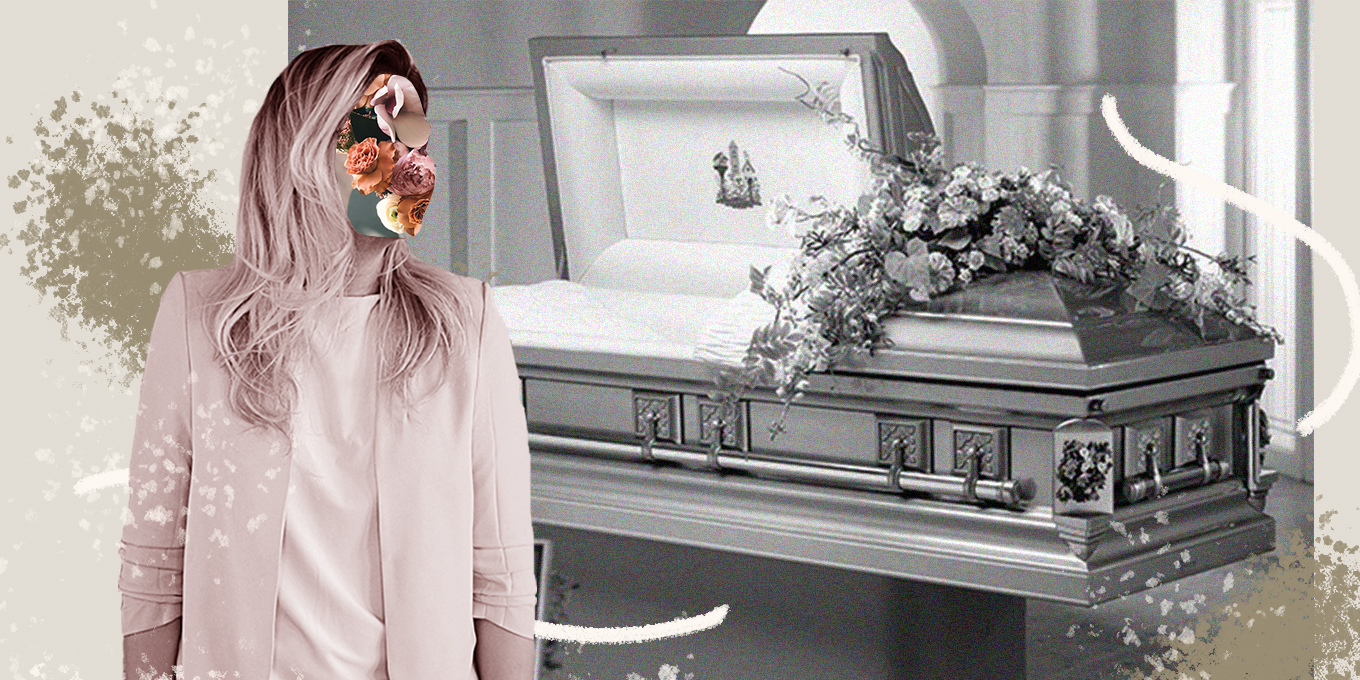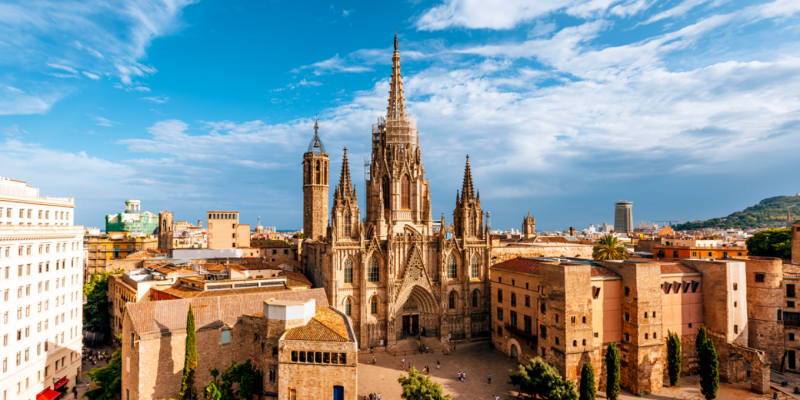Society
I’m a Funeral Director Taking Care of COVID-19 Casualties
“I don’t do it for the dead, I do it for the living and what it means to the families of the person who has passed.”
by : Briony Smith- May 20th, 2020

The COVID-19 pandemic has swiftly and dramatically changed our daily lives. We’re speaking to Canadian women about how coronavirus has affected how they work, parent, run their businesses and more. For information on where to find the latest updates on the evolving COVID-19 situation in Canada, go here.
Now, Toronto-based funeral director and embalmer Natalie Petite, 33, shares what it’s been like working as a last responder in the death care industry during a pandemic.
I became a funeral director after suffering the tragic loss of my partner in 2012. Her unexpected passing at the age of 28 truly changed my perspective on life, and challenged me to re-examine what I wanted to accomplish with whatever time I have left. So I decided to do something that would allow me to use my skills and fortitude to help people through the immense pain of losing a loved one. I joined the death care industry in 2015 as a funeral director assistant, and in 2017 I took the leap to pursue formal education to become a funeral director. I assist families with funeral arrangements, and coordinate visitations, funeral services at houses of worship, interments and repatriation of human remains, as well as the embalming of their deceased loved one’s remains.
I love that there’s no specific routine to my day, which keeps my overactive brain engaged. It also makes me feel like I truly am doing my bit to make a difference in people’s lives – to lighten a bit of the immense sorrow they are going through. And, to some extent, my job is also a way to heal my own grief, so it has therapeutic qualities to it as well. People often ask me, “How do you do it?” or “Why??!!”, but my answer has been and will always be, “I don’t do it for the dead, I do it for the living – I do it for what it means to the families of the person who has passed.”
We have managed our share of the COVID-19 surge in casualties. A lot of people have died. Me and many other funeral workers have all been working 10- to 12-hour days, six to 10 days straight with no days off in between, on-call 24 hours a day. Crematoriums are operating at full capacity sometimes, often 24/7, so I have witnessed the undeniable fact that this pandemic has brought a lot of casualties in a very short span of time.
My personal “things are getting real” COVID-19 moment was when the province announced restrictions in the amount of people allowed at funeral homes. Then there was, naturally, the concern of dealing with a new infectious disease and the safety implications it would have for us embalmers. Then there was a period in which we were receiving constant updates from our regulating body, the Bereavement Authority of Ontario (BAO). There were changes to policies almost every other day. Our job has mutated to emphasize the safety of my staff, of the families we serve and the accountability we have towards keeping the community safe…but we still have to deal with grieving families, for whom navigating grief now has become twice as challenging.
I instantly began working on incorporating remote access tools so people could sign documents and provide vital statistic information from home. I educated myself thoroughly on COVID-19 so we could create embalming, disinfection, containment, and transfer protocols to keep ourselves and the community safe. Behind the scenes, we had to manage an initial surge of PPE shortage.
I think a lot of people would find it surprising that funeral services providers are technically not considered part of health-related disciplines by the government; our governing body falls under the category of consumer services, so we are at the same level of governance as the agencies that regulate real estate, travel or wine production. What this means is that we have not been given priority to access PPE or government supplies – as they naturally would go to healthcare providers first – but, if you think about it, we are dealing firsthand with COVID-19 fatalities and their families. I’m very lucky to work for a family-owned firm that takes excellent care of its employees. It truly feels like a state of emergency in terms of implementing all of these new changes while still being compassionate and understanding of the needs of the families.
We began working very closely with our clergy and community partners to ensure we could provide at least basic ceremonies for our families, and we moved to strengthen our livestream equipment so people could still have the opportunity to pay their respects to friends and family members. Helping people celebrating the lives of their loved ones in non-traditional ways has been tough, though. At the moment, it’s not possible to hold a big funeral mass or funeral service attended by a lot of people, so while technology that accomplishes that goal is a great tool, it’s also challenging as many older people are not familiar with or have access to technology to watch a livestreamed funeral.
Another challenge? I think last responders are terribly overlooked most of the time. We’re not heroes, we’re not angels, we’re not super-human. While it comes from a good place, being called heroes or angels erases the vulnerability and humanity of essential workers. Many essential workers do not have a choice in the matter: if they don’t work, they don’t eat; if they don’t work, there’s no electricity, there’s no groceries. So just remember that we are all out here, but we are also concerned, worried and, quite frankly, scared, too. We’re not immune to COVID-19; we’re probably even more likely to contract it, or bring it home. So while I appreciate society’s compliments, I think that initiatives like the provincial government’s move to integrate hazard pay to essential workers is truly the best way to support us. We wish people would write to their MPs to tell them COVID-19 does not end when somebody passes at a hospital or retirement home. There are people who are dealing everyday with the aftermath of COVID-19 deaths: we are your true last line of defense against COVID-19, yet we have been excluded from the province’s list of pandemic pay premium and hazard pay increases for essential workers.
We continue to work hard and give our very best in spite of this dreadful situation. When I leave home in the morning, I feel that I am doing my part, now more than ever, to help families cope with tragedy – with the actual worst-case scenario. When my clients express their gratitude, their words of appreciation mean the world to me. It’s powerful. It’s wonderful. It makes the long days, the day-to-day challenges, the stresses worth it, being there for them, the same way somebody was there for me at my time of need.
—As told to Briony Smith
READ MORE:
Newsletter
Join our mailing list for the latest and biggest in fashion trends, beauty, culture and celebrity.
Read Next

Fashion
This Canadian Swimwear Brand Designed Canada’s 2024 Women’s Olympic Beach Volleyball Team Uniforms
And they're *so* good.
by : Allie Turner- Apr 24th, 2024
Fashion
The Most Iconic Looks In Met Gala History, From 1973 To Now
40 years of the night that's all about trailblazing fashion.
by : ELLE Australia- Apr 24th, 2024

Culture
ELLE Escapes: Savannah
Where to go, stay, eat and drink in “the Hostess City of the South.”
by : ELLE- Apr 15th, 2024




